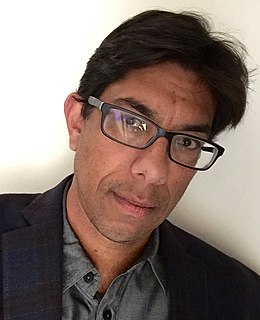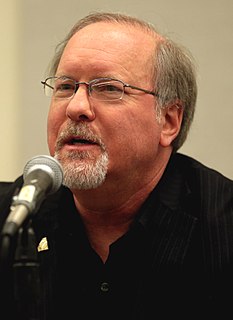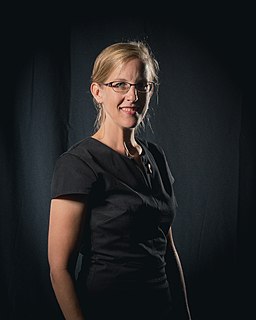A Quote by Ray Bradbury
Men read science fiction to build the future. Women don't need to read it. They are the future.
Related Quotes
There are two races of people -- men and women -- no matter what women's libbers would have you pretend. The male is motivated by toys and science because men are born with no purpose in the universe except to procreate. There is lots of time to kill beyond that. They've got to find work. Men have no inherent center to themselves beyond procreating. Women, however, are born with a center. They can create the universe, mother it, teach it, nurture it. Men read science fiction to build the future. Women don't need to read it. They are the future.
It had also been my belief since I started writing fiction that science fiction is never really about the future. When science fiction is old, you can only read it as being pretty much about the moment in which it was written. But it seemed to me that the toolkit that science fiction had given me when I started working had become the toolkit of a kind of literary naturalism that could be applied to an inherently incredible present.
As a kid, I didn't need to be convinced the future promised peril and oppression, so when I started thinking up the middle-grade science fiction novel that became 'The Boy at the End of the World,' it seemed only natural to build the story around a dark vision of the future. In my book, civilization has nearly destroyed itself.
To be a science fiction writer you must be interested in the future and you must feel that the future will be different and hopefully better than the present. Although I know that most - that many science fiction writings have been anti-utopias. And the reason for that is that it's much easier and more exciting to write about a really nasty future than a - placid, peaceful one.
Who reads short stories? one is asked, and I like to think that they are read by men and women in the dentist's office, waiting to be called to the chair; they are read on transcontinental plane trips instead of watching banal and vulgar films spin out the time between our coasts; they are read by discerning and well-informed men and women who seem to feel that narrative fiction can contribute to our understanding of one another and the sometimes bewildering world around us.



































